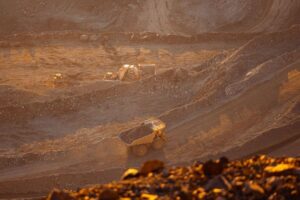Johns Lyng Group (ASX:JLG): Taking the easy way out with a $1.1bn buyout

The tenure of Johns Lyng Group (ASX:JLG) is ending with Pacific Equity Partners buying it out for $1.1bn after several months in the doldrums.
JLG a restoration services company, repairing properties after damage by insured events, including weather and other impact incidents. This could (still) be one of the few companies that may be a beneficiary of climate change.
We speculated at the start of this year that JLG could represent a buying opportunity for investors. Ultimately, we were right, but only because the company is being taken over.
Johns Lyng Group has been around for a long time
Johns Lyng Group was established in 1953 and for its first five decades was in the hands of the founding Lyng Family and was mostly a Victorian business. In 2003, current CEO Scott Didier bought it outright and has taken it to the next level. He has made it a national business and a public one, overhauled the culture and increased the business’ turnover from $12m to more than $400m today.
It has 17 companies across three operating divisions: Insurance Building & Restoration Services, Commercial Building Services and Commercial Construction. Beyond repair and restoration works, it provides hazardous waste removal, strata services, residential and commercial flooring, shop-fitting and emergency household repairs. In some instances, it wins government contracts to assess properties damaged by floods. The company has also made forays into the US, playing a part in the recovery from Hurricane Ian which hit Florida.
Johns Lyng has a long term track record of earnings growth, both as a private and public company. It boasted to have achieved achieved a 25% revenue CAGR since 2004 and a 35% CAGR growth in the past 5 years since its IPO – at least it did until 12 months ago.
It all went sour in the last 12 months
The past few years have not been easy, however, particularly the last 12 months. Its shares are fell over 75% from all time highs reached in early 2022 up to April 2025. For most of the company’s decline, it was easy to blame the market conditions at the time, in the immediate aftermath of Russia’s invasion of Ukraine, while being a lot harder to pinpoint to specific company factors. It is not as though the company was seeing revenues decline, nor seeing substantial cost inflation that was eating into its margins. Granted many of its sector peers were, including some companies that were listed.
Nonetheless, it isn’t unreasonable to assume investors became concerned about its big valuation (55x P/E at that time). The sale of 1m shares in the company by Scott Didier and Lindsay Barber (Executive Director and Chief Operating Officer) back then did not help. Even though the pair remained a stake of just over 25%, investors loathe it when directors sell shares.
It is important to note that JLG is a contractor and has freedom to pass costs to insurers. It achieved $1.2bn in revenue, $130m EBITDA and a $63.3m profit. The company told investors FY24 was an inflection point for growth in the USA and in Australia. It grew its American business partners to 25 and was appointed to AllState’s Emergency Response and Mitigation Panel, potentially giving it access to 16m people across America. In Australia and New Zealand, it extended several contracts including QBE, Suncorp and Tower.
For FY25, Investors had been told to expect $1.22bn in revenue and $147m in EBITDA, which would be up 26% and 16%. In September 2024, it bought insurance building and restoration services provider Keystone. Keystone is expected to contribute $100m in revenue and $9m in EBITDA.
A reputation hit
The company’s reputation took a hit in September 2024 when it was named in an ABC investigation into the strata industry. The ABC’s work started early in the year with the allegation that one strata companies was ripping off its customers through taking commissions from insurers and repair contractors, as well as charging high fees.
After this, the ABC invited its audience to submit complaints and published follow-up coverage. What would have ticked off strata-levy payers was the president of the industry’s peak body being caught on a webinar joking about kickbacks – particularly the NSW Government’s strata hub which requires all unit-holders to pay a $3 fee to fund a digital platform on strata schemes, and the strata industry was charging fees to administer the scheme. ‘That bought me a brand new ute…And will continue to buy, well, buy someone else a new ute,’ he said.
Sorry, what has all this got to do with JLG? Let’s get back on track. The article talked about one incident where JLG was hired to replace a set of stairs, ruined after a car ran off the road. It quotes $95,000, but the strata manager found a solution at one-third the cost, leaving JLG to slash its price by 20%. The Chairman of the owners corporation found a link between JLG, the strata manager and insurance brokers and also uncovered that a proportion of earnings were given to JLG (indirectly through Bright & Duggan which is majority owned by JLG).
JLG responded to investors telling them it got no commissions or rebates from the insurance and while Bright & Duggan did, these were not a significant revenue stream. It did not shy away from the quote saying it reviewed the process and was ‘satisfied our processes are robust and transparent’.
JLG’s tenure will conclude with a takeover offer
With companies (such as Medibank) having recovered from crashes caused by far more adverse reasons than JLG, perhaps patient investors could’ve seen a return in the next 2-3 years. But it seems the company’s tenure on the ASX will end with a takeover. Pacific Equity Partners has offered $1.1bn for the company, which is only 10.3x EV/EBITDA and a 66% premium to the 30-Day VWAP prior to the takeover offer.
PEP inevitably thinks it can turn things around and then make itself a tidy profit in a few years. Meanwhile JLG will be happy to be getting out of the eye of public markets. JLG’s boss Peter Nash declared,’ We are pleased that PEP has recognised the value of JLG’s integrated building services operations…’.
‘The unanimous recommendation was based on a thorough evaluation of a range of factors including JLG’s intrinsic value under different scenarios and the potential medium-term share price without the Scheme, and taking into consideration JLG’s underlying business performance over the last two years and current business momentum’.
Let us rephrase him into simpler, somewhat more colloquial language. ‘ASX investors were unlikely to re-rate us significantly over the medium term as they but we are pleased PEP sees value where other investors do not’. As Warren Buffett said, it takes 20 years to build a reputation but 5 minutes to destroy it. Evidently, the board didn’t have the patience to persist and face a reality of either the company not recovering, or the company recovering and investors not giving it the credit.
Bottom line
This is far from the first time a company has delisted due to an opportunistic private equity offer and won’t be the last. But there’ve been more than usual in recent years and there’s a lot of discussion as to how it can be resolved.
In our view, the ASX could take some measures to re-encourage companies to list. And who knows, we could even see JLG back on the ASX someday when PEP wants out.
But ultimately, investors on the ASX punish companies for mishaps more than other jurisdictions and don’t have the patience that investors in other jurisdictions do (or perhaps just the thought that a company’s reputation should be on what it is going to do vs what it has done). If JLG had been on Wall St, it may not have gotten back to COVID-19 levels by now, but it would probably still be higher than what is now.
In the hands of private equity though, there will be changes made to the business and while we won’t see running commentary on what’s going on daily, we’ll know of changes if JLG ever relists.
What are the Best ASX Stocks to invest in right now?
Check our buy/sell tips

Blog Categories
Get Our Top 5 ASX Stocks for FY26
Recent Posts
The Metals Driving Australia’s Market in 2026
Australia will still be a metals market in 2026; that part is not up for debate. What is changing is…
Patagonia Lithium (ASX:PL3) Surges 53% on Ameerex Partnership: Is This Lithium Explorer a Buy?
Patagonia Lithium Secures Key Partnerships for Growth Patagonia Lithium (ASX: PL3) surged 53% to A$0.13 on Friday, hitting its highest…
Aristocrat Leisure (ASX:ALL) Extends $750m Buyback: Time to Buy Australia’s Gaming Giant?
Aristocrat Leisure: A Compelling Investment Opportunity Aristocrat Leisure (ASX: ALL) rose 1.01% to A$57.22 on Friday after announcing a A$750…


